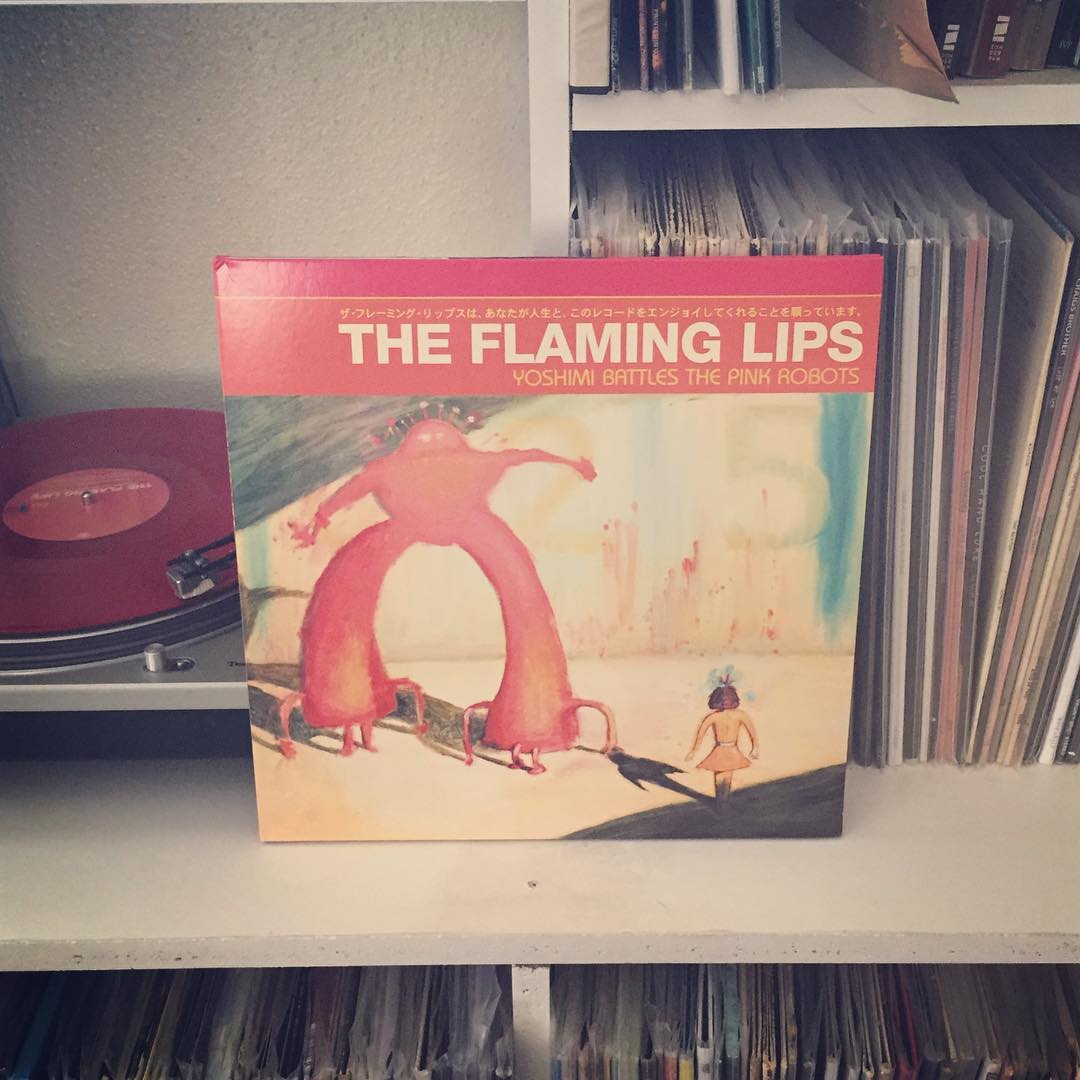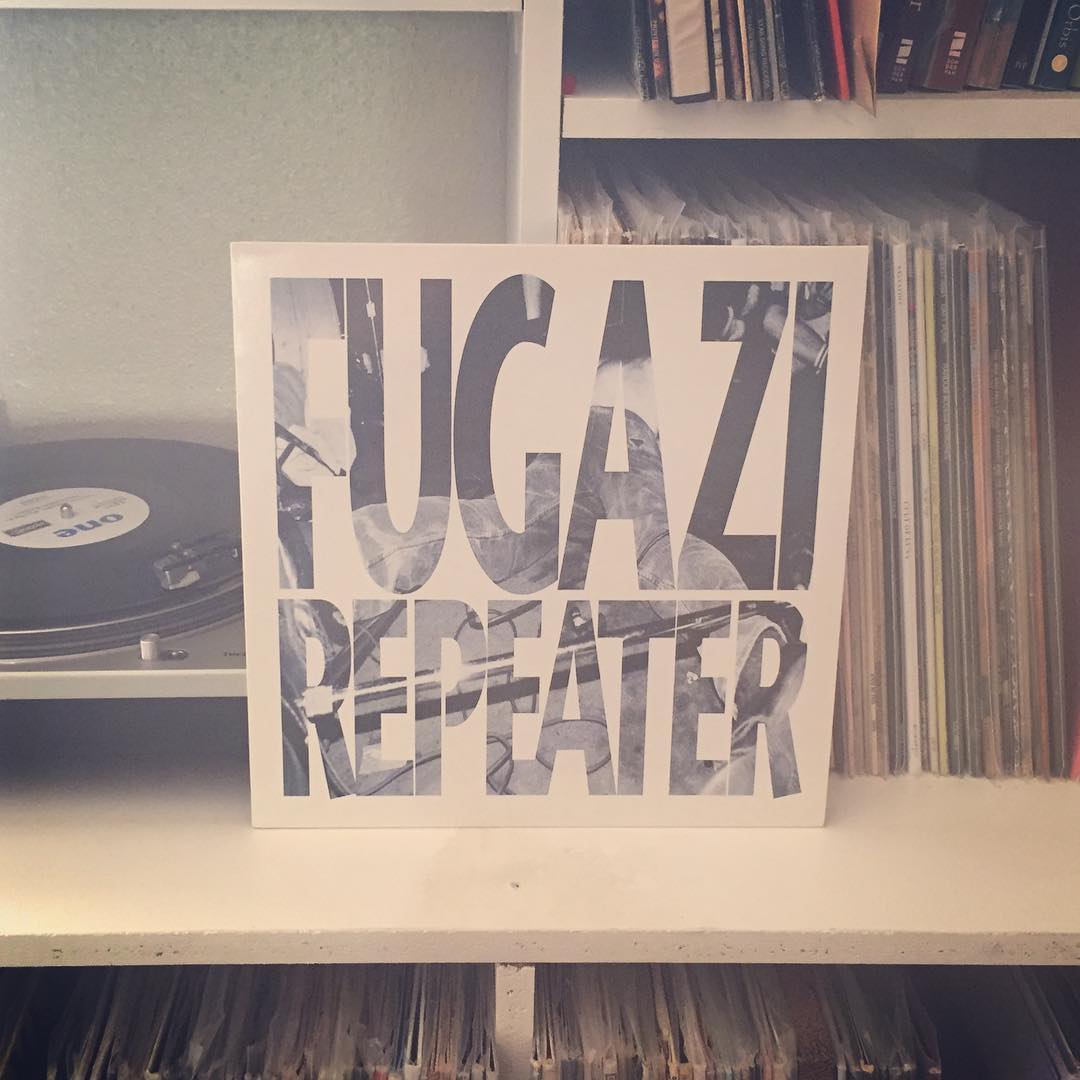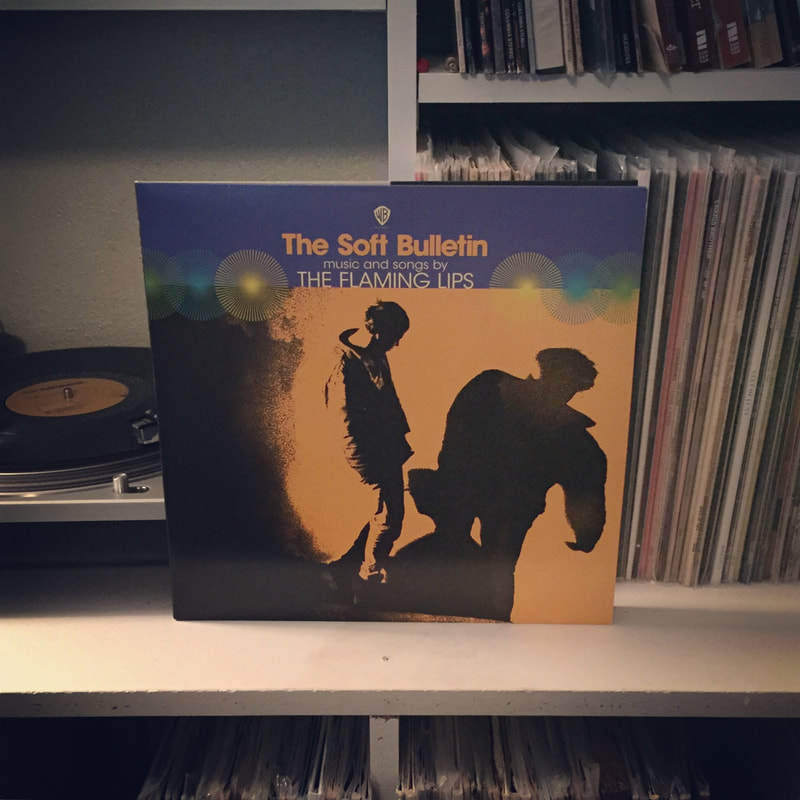For most of my life, The Argument has been my favorite Fugazi album. And while that position has been threatened as I trudge deeper into their catalogue (I’m looking at you, Kill Taker), The Argument remains their most singular and refined statement.
Continue reading
Author: Nathaniel FitzGerald
Record #182: Fugazi – End Hits (1997)
 Across six albums and two EPs, Fugazi created some of the most fearlessly adventurous, boundless experimental post-hardcore ever released.
Across six albums and two EPs, Fugazi created some of the most fearlessly adventurous, boundless experimental post-hardcore ever released.
And even in the context of their full discography, End Hits is a strange beast. Continue reading
Record #180: Fugazi – In on the Kill Taker (1993)

From what I understand, anytime Steve Albini records something, the band is unhappy with the result and decides to change it (see: In Utero). In on the Kill Taker went through this process, and I’m glad they did, because this entire record is unmistakably Fugazi, and I would’ve hated for it to have sounded like someone besides Fugazi playing the songs. Continue reading
Record #179: Fugazi – Repeater (1990)
Continue reading
Record #165: The Flaming Lips – Yoshimi Battles the Pink Robots (2002)
 Like The Soft Bulletin, Yoshimi Battles the Pink Robots could do with some decontextualizing.
Like The Soft Bulletin, Yoshimi Battles the Pink Robots could do with some decontextualizing.
Even a decade after its release, it seems this record is everywhere.
Continue reading
Record #164: The Flaming Lips – The Soft Bulletin (1999)
Too often, The Soft Bulletin’s significance is attributed to the creative leap forward it was for the Flaming Lips. It marked the moment the acid-dropping punks decided to get serious and make some seriously beautiful pop music.
And while that’s true, it discounts the strength the album holds on its own…
Personally, the first Lips record I ever heard was 2009’s Embryonic, which played more like the psychedelic soundtrack to a 1950’s sci-fi horror movie than anything the Flaming Lips would have turned out.
And that, along with “Do You Realize,” “She Don’t Use Jelly,” and the Postal Service’s cover of “Suddenly Everything has Changed” were my context for hearing this record.
And I instantly loved it.
The urgent, overdriven drums, the synth strings, the sprinkling harp, the extended instrumental passages, and Wayne Coyne’s shaking, wild-eyed voice that ties everything together. It’s an album of unveiled optimism, young love, friendship, and occasionally drugs (this is the Flaming Lips, isn’t it?) that begs the listener to live and be alive, even in the face of hopelessness.
And fourteen years later, there hasn’t been much to rival moments like the opening strains of “The Race for the Prize” or the instrumental groove in “The Spark that Bled” or the closing crescendo of “Feeling Yourself Disintegrate.” It’s an absolute classic, regardless of its context in the Flaming Lips’ or anyone else’s discography.
Record #162: Explosions in the Sky – All of a Sudden I Miss Everyone

Not everyone likes Explosions in the Sky, but no one who dislikes them does so because they don’t make beautiful music.
Simplified restatement: Explosions in the Sky makes beautiful music and no denies this.
Continue reading
Record #153: Emiliana Torrini – Love in the Time of Science (1999)
 This is one of four records in our collection that belongs more to my wife, but I bought it for her, and sometimes will give it a spin myself.
This is one of four records in our collection that belongs more to my wife, but I bought it for her, and sometimes will give it a spin myself.
This is because I love trip hop (or at least trip hop-leaning pop).
Continue reading
Record #130: Deerhunter – Microcastle (2008)
 With less haze this time around, Deerhunter made just about everyone’s end-of-the-year list, and that in a year that saw Kanye West, TV on the Radio, Beck, and a reunited Portishead releasing records. Continue reading
With less haze this time around, Deerhunter made just about everyone’s end-of-the-year list, and that in a year that saw Kanye West, TV on the Radio, Beck, and a reunited Portishead releasing records. Continue reading
Record #129: Deerhunter – Cryptograms/Fluorescent Grey EP (2007)
Atlas Sound) and Locket Pundt (a.k.a. Lotus Plaza), even if technically, the band released two albums and an EP before any official release from either one.
Despite their success, Deerhunter is the archetypal garage band–a group of young bucks banging out songs who love listening to music as much as they love creating it, as evidenced by the band blog, curated mostly by Bradford Cox, and the hour long Krautrock version of My Sherona played at an Atlas Sound show.
But despite their prolificacy and media frenzy around them (read: Cox, the most controversial member of the group), Deerhunter first and foremost makes excellent music. Cryptograms, their second album and breakthrough (and the first Deerhunter album Cox doesn’t disown) is absolutely, one hundred percent excellent, and it remains my favorite. The album is split into two halves (on vinyl, two discs). The first half is more atmospheric, with an occasional song peering out of the ambient fog of droning guitars and synthesizers with meaty bass lines and heavily-echoed vocals. “Lake Somerset” veers closely to ambient dance punk, while “Octet,” but for its one-note bass pound, might escape a casual listener for its ambience.
The second half is the conceptual opposite: of the five tracks, only one (“Tape Hiss Orchid”) is an instrumental. The rest are hazy pop songs with hypnotic pounds and shoegazy guitar jangles over trance-like vocals. With the inclusion of the Fluorescent Grey EP on the fourth side, this record almost becomes two separate albums, one more ambient focused and the other pop-song centric.
But the remarkable thing is, they do both well, impressing on each half of the record. Sadly though, as their career has progressed, Deerhunter (and Atlas Sound) have moved away from the atmospheric aspects of their palette. And while the rest of their catalogue is just as excellent, no one does ambient indie rock the way they do here, leaving a void that only Cryptograms can fill.


